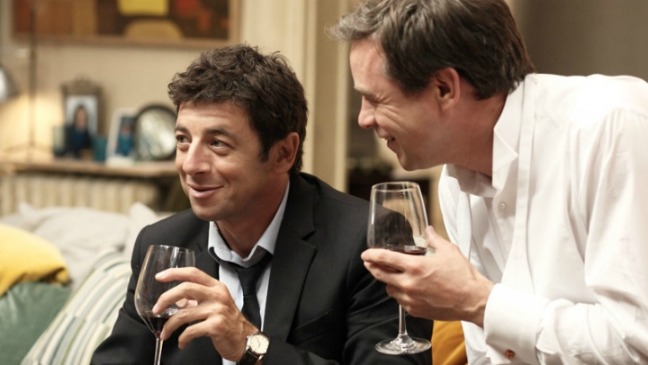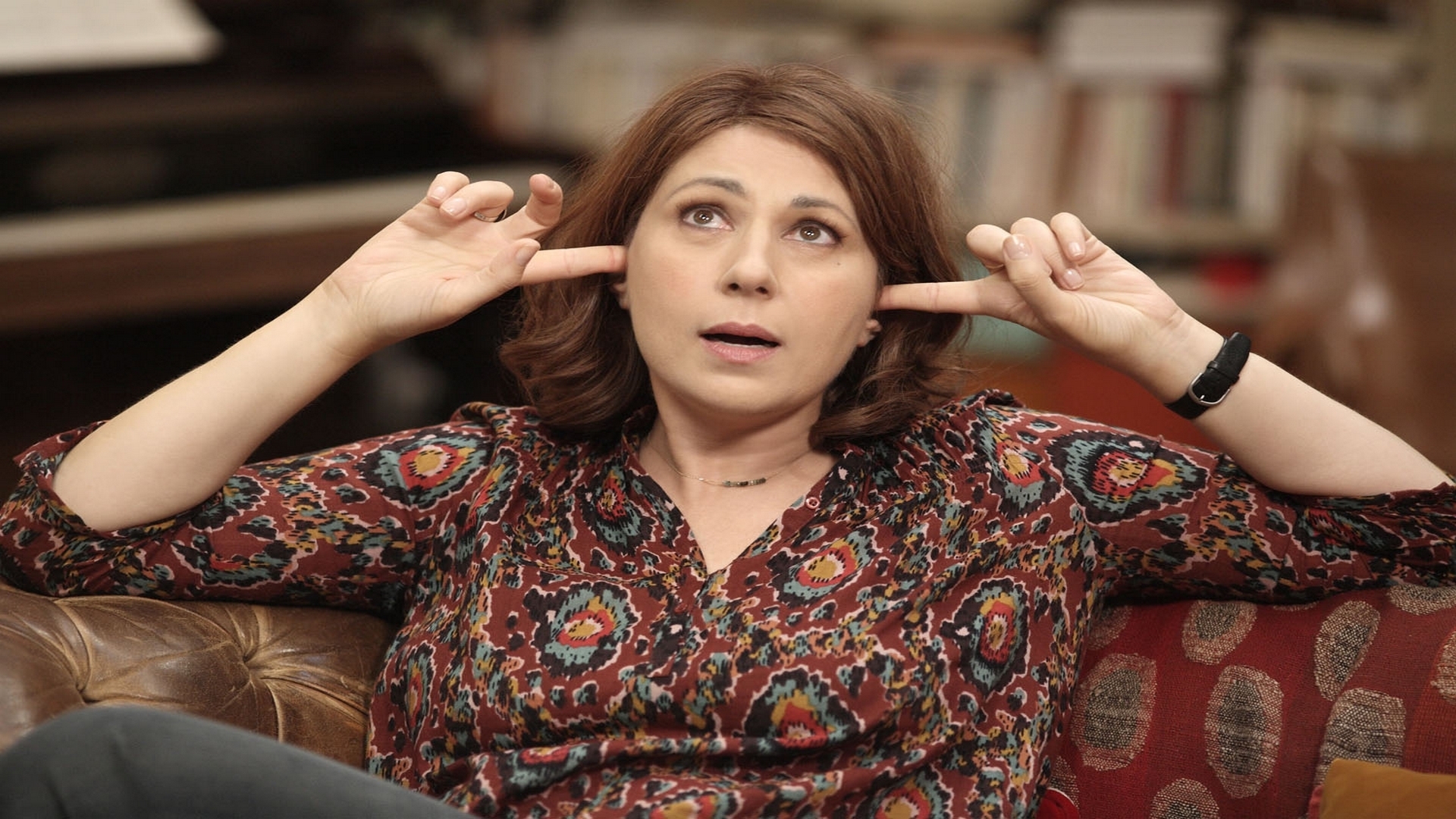What's in a Name?
Reviewed
by
Damien Straker on
July 24th, 2013
Madman presents
a film directed by
Alexandre
De La Patelliere and Matthieu Delaporte
Screenplay
by Matthieu
Delaporte
Starring:
Patrick Bruel, Valerie Benguigui, Charles Berling, Guillaume de
Tonquedec and Judith El Zein
Running
Time:
109 minutes
Rating:
M
Released:
July 25th, 2013 |
5/10
|
|
A
family is
preparing to have a dinner party together in a French apartment. It is
being
hosted by Elisabeth (Valerie Benguigui) and Pierre (Charles Berling),
while the
first two guests are Vincent (Patrick Bruel), who is Elisabeth's
brother, and
Claude (Guillaume de Tonquedec), who is a childhood friend. Vincent
arrives
before his pregnant wife Anna (Judith El Zein) and one of the main
discussions
is what they will be naming their child. To create havoc Vincent elects
to tell
them a controversial name. His one small lie unleashes the fury of
Pierre first
and then numerous other arguments breakout, revealing each of their
personalities but also some long buried family secrets and some
unexpected
conflicts and surprises.

There
are
pleasures to be found in this minor French comedy, it just takes time
to
reflect on them. Adapted from a play, the film seems as though it lacks
cinematic stylisation. The technical elements leave something to be
desired
because this is directors Alexandre de La Patelliere and Matthieu
Delaporte's
first feature film from Delaporte's own play. The film is set almost
entirely
in one area, which isn't new, but the camera is largely static and the
actors stand
around, waiting for their turn to speak. One of the saving graces for
the film
though is that the humour shifts between highbrow French culture and
then
gleefully embraces a silly side too. The film opens with the repeat
images of
people throughout French history being assassinated through the macabre
route.
This establishes the rather black rim that borders around the jokes.
The film
is about figurative character assassinations as people shoot each other
down,
based on their interests or their insecurities. Pierre and Vincent
argue about
the political incorrectness of the baby name he is said to have chosen,
I
guessed prematurely what it was, and then Vincent argues that he took
it from a
literary text and they fight over the spelling of the name.

The
dialogue
is written with rare, microscopic details and then the humour and jokes
broaden
as the power plays between the characters shift. Vincent the instigator
suddenly
becomes the butt of people's jokes, like when they torment him about
his facial
expressions. Similarly, after being left out of conversations Elisabeth
launches at Pierre over their domestic roles. Some of the setups are
well-organised,
particularly when Vincent is about to reveal that name because it gives
a preemptive
feel to the chaos that is about to erupt. The weakness of the film is
that
despite the comedy revealing character and being purposeful, as it
should be,
there aren't a lot of big laughs. I think this has to do with the
film's low
energy levels. At just under two hours the film feels very long when
this setup
has been performed much leaner in the past. The Roman Polanski film Carnage from last year had a very
similar premise but it was thirty minutes shorter and felt more
satisfying. It
was funnier and had more memorable episodes that I can still remember
today. Nonetheless,
this is a comedy that is deceptively small, and more layered and
verbally
articulate than a lot of mainstream comedies.
|